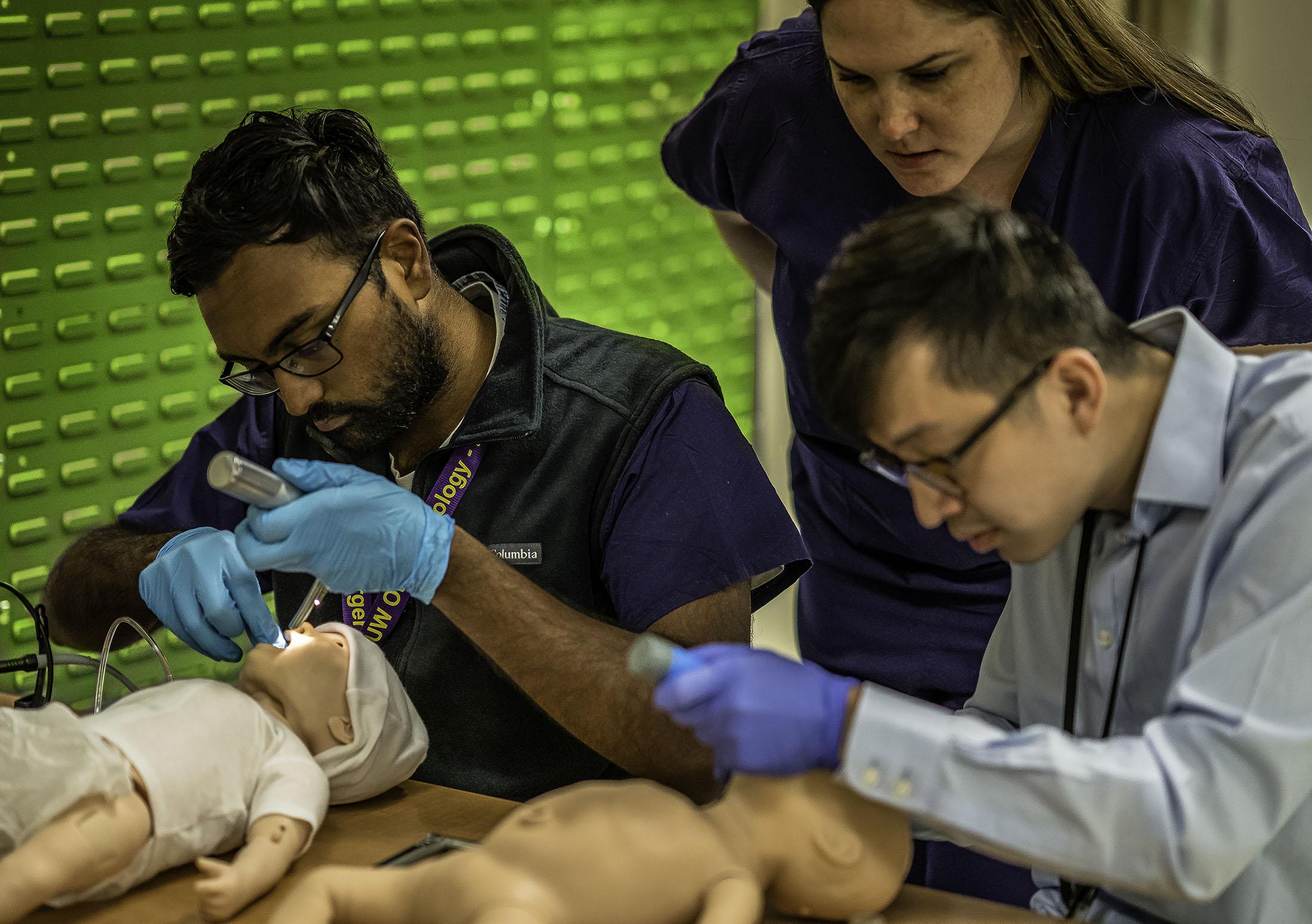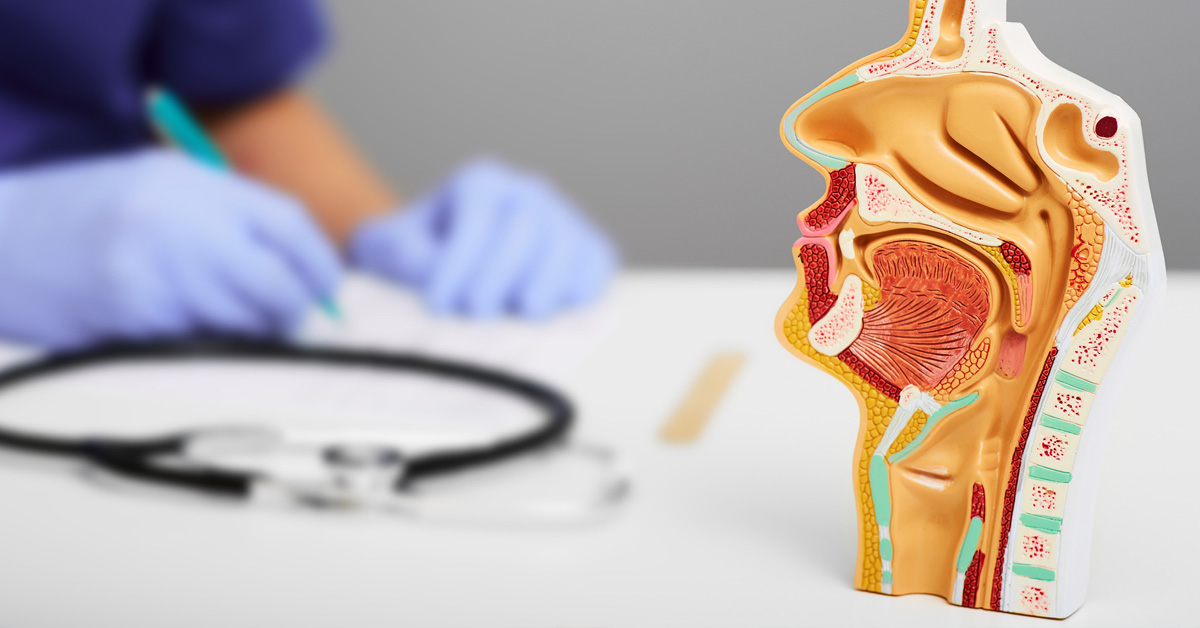Advanced ENT Surgery Options for Sinus Blockage: What to Expect
Advanced ENT Surgery Options for Sinus Blockage: What to Expect
Blog Article
Checking out the Area of Otolaryngology: What to Expect When You Seek Advice From an ENT
Otolaryngology, commonly described as ENT, includes the diagnosis and treatment of nose, throat, and ear conditions. For those experiencing related issues, speaking with an ENT expert can provide clearness and alleviation. Comprehending what to anticipate during such consultations is essential for efficient communication and care. This review will certainly detail key aspects of the ENT experience, including usual factors for sees and the processes associated with medical diagnosis and treatment.

Understanding Otolaryngology: A Review
Otolaryngology, usually referred to as ENT (Ear, throat, and nose) medicine, is a specialized branch of medicine that concentrates on the diagnosis and treatment of conditions affecting these important areas of the body. This field encompasses a variety of conditions, including those associated to hearing, balance, breathing feature, and speech. Otolaryngologists are educated to manage both clinical and surgical treatments, utilizing sophisticated techniques and innovations. Their competence extends beyond standard disorders, dealing with issues such as allergic reactions, sinus infections, and hearing loss. Furthermore, they play a critical function in the monitoring of head and neck cancers cells, providing extensive treatment tailored to individual person needs. In general, otolaryngology stays vital for maintaining health and lifestyle in afflicted people.
Usual Factors to See an ENT Professional
Lots of people seek the expertise of an ENT professional for a range of reasons, mirroring the diverse nature of conditions that influence the ear, nose, and throat. Common problems consist of chronic sinus problems, which typically leads to persistent nasal congestion and facial pain. Allergic reactions and their connected signs and symptoms, such as itching and sneezing, likewise prompt visits to these specialists (ENT Clinic). Hearing loss, whether progressive or abrupt, is another substantial reason for examination. Furthermore, individuals might seek examination for throat disorders, consisting of consistent hoarseness or ingesting problems. Sleep apnea, identified by interrupted breathing throughout sleep, is frequently resolved by ENT experts. Each of these conditions highlights the importance of specialized treatment in handling complicated ENT-related wellness issues
Preparing for Your ENT Visit
When preparing for an ENT consultation, it is vital to gather appropriate details and take into consideration any kind of details concerns. Patients must put together a detailed case history, including previous ear, nose, or throat concerns, surgeries, and present drugs. Recording symptoms-- such as seriousness, frequency, and period-- can give beneficial understandings for the ENT specialist. In addition, individuals must prepare a checklist of inquiries they wish to ask, guaranteeing that all issues are attended to throughout the visit. Bringing along any kind of appropriate clinical records or test outcomes can even more help the ENT in comprehending the patient's problem. Patients ought to validate their visit details, including day, time, and place, to minimize any final confusion. Correct preparation can enhance the effectiveness of the examination and cause far better results.
What to Anticipate During the Consultation
As the appointment begins, the client can expect to participate in an extensive discussion with the ENT specialist concerning their symptoms and case history. The professional will certainly ask about the period, frequency, and seriousness of symptoms such as hearing loss, nasal congestion, or aching throat. In addition, the person's previous clinical conditions, drugs, and any type of pertinent family members history will be examined, assisting the professional in creating a total understanding of the client's health and wellness. The ENT may additionally inquire about lifestyle factors, such as exposure click here to irritants or allergens. This open dialogue establishes a foundation for the appointment, making sure that the client's concerns are attended to and setting the phase for any type of needed assessments or suggestions for therapy.
Analysis Examinations and Procedures in Otolaryngology
A variety of analysis examinations and treatments are important in otolaryngology to properly examine and diagnose conditions influencing the nose, throat, and ear. Typical tests include audiometry, which measures hearing feature, and tympanometry, analyzing middle ear stress. Nasal endoscopy allows visualization of the nasal flows and sinuses, while laryngoscopy examines the throat and singing cords. Imaging techniques, such as CT scans and MRIs, supply detailed sights of head and neck frameworks. Allergy testing may also be conducted to identify triggers for sinus or respiratory system problems. These analysis tools allow ENT specialists to develop a complete understanding of clients' problems, guaranteeing tailored and effective management strategies. Proper diagnosis is necessary for successful treatment end results in otolaryngology.
Treatment Options Used by ENT Specialists
ENT experts offer a range of therapy choices customized to deal with certain conditions affecting the nose, ear, and throat. These treatments range from conservative techniques, such as medicine and lifestyle modifications, to more intrusive treatments. For example, allergic reactions may be handled with antihistamines or immunotherapy, while persistent sinusitis might call for nasal corticosteroids or sinus surgery. For hearing loss, ENT professionals usually recommend listening device or medical treatments like cochlear implants. In instances of throat conditions, options can consist of speech treatment or surgeries to get rid of blockages. In addition, they might give assistance for handling rest apnea, including making use of CPAP gadgets or surgical interventions. On the whole, the goal is to enhance patients' high quality of life with individualized care and efficient treatment techniques.
When to Look For Follow-Up Care With an ENT
When to seek follow-up treatment with an ENT expert is essential for taking care of continuous symptoms or difficulties connected to ear, nose, and throat problems, acknowledging. Individuals must think about scheduling a follow-up consultation if symptoms continue despite initial therapy, such as chronic ear pain, nasal congestion, or throat pain. Adjustments in hearing, equilibrium problems, or uncommon nasal discharge may also necessitate additional assessment. Furthermore, if an individual experiences adverse effects from recommended medications or has undergone an operation, follow-up care is essential to keep track of healing and attend to any concerns. Prompt consultations can guarantee efficient management of conditions, avoid prospective problems, and give assurance pertaining to one's health and wellness. Looking for follow-up treatment promotes positive health and wellness management in otolaryngology.
Often Asked Concerns

What Certifications Should I Search for in an ENT Specialist?
When seeking an ENT professional, one should seek board qualification, pertinent experience, and solid client testimonials. In addition, efficient communication abilities and a caring approach can significantly boost the general treatment experience.
How Do I Pick the Right ENT for My Requirements?
Choosing the appropriate ENT expert includes reviewing their credentials, experience, and client evaluations (Otolaryngology). It is essential to contemplate their communication style and technique to therapy, guaranteeing they line up with the person's particular health and wellness demands and choices
Are There Any Type Of Dangers Connected With ENT Procedures?
The threats linked with ENT treatments may include infection, blood loss, anesthetic complications, and prospective damage to bordering structures. People ought to review these risks with their medical professional to recognize individual concerns and warranty educated choices.
Exactly How Can I Handle Anxiety Prior To My ENT Appointment?
To take care of anxiousness before a consultation, individuals can exercise deep breathing exercises, envision positive end results, prepare questions ahead of time, and seek support from friends or family, cultivating a sense of confidence and peace.
What Should I Do if I Experience Adverse Effects From Therapy?
The person should promptly report them to their health care service provider if side results from treatment take place. Modifications to therapy or extra treatments may be needed to guarantee security and efficiency in handling their problem - Hearing. As the appointment begins, the patient can expect to involve in a detailed conversation with the ENT professional regarding their symptoms and clinical background. These diagnostic tools make it possible for ENT professionals to develop a thorough understanding of patients' conditions, guaranteeing tailored and reliable management strategies. ENT professionals use a selection of treatment choices customized to resolve particular conditions impacting the throat, ear, and nose. When seeking an ENT professional, one need to look for board qualification, appropriate experience, and strong client testimonials. Picking the right ENT specialist involves evaluating their qualifications, experience, and person testimonials
Report this page